Scott Morrison’s path to living with Covid-19
Scott Morrison has secured a ‘game-changer’ national agreement to release Australians from isolation requirements, busting queues for tests centres and throwing a lifeline to businesses.
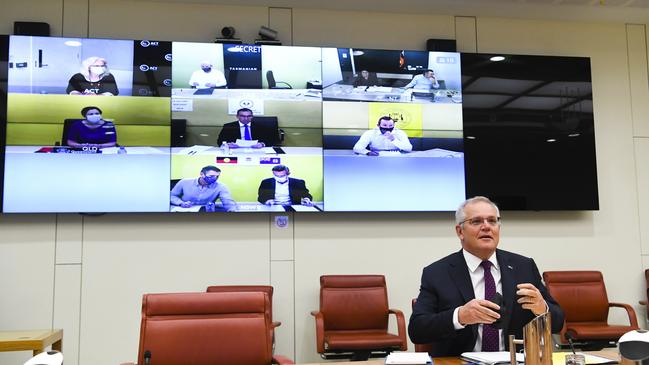
Scott Morrison has secured a “game-changer” national agreement to live with Covid-19 by releasing Australians from isolation requirements, busting queues at testing centres and throwing a lifeline to businesses crippled by staff shortages.
Under a deal struck by the national cabinet that brings the nation into a new phase of the pandemic, a close contact will be redefined as exposure to the virus within a household setting for more than four hours. Close contacts and positive cases will need to isolate for seven days.
A new national standard for testing will also apply so that only those who meet the new definition of a close contact will be required to get a rapid antigen test, a decision that opens the floodgates for the virus to spread more swiftly in the community.
The move is aimed at slashing queues at testing centres and prioritising services for those who are most in need. PCR tests will be reserved for those displaying symptoms, priority groups and close contacts who return positive rapid test results.
“If you don’t fulfil this definition of a close contact then there is no need for you to be in that line,” the Prime Minister said.
“You should go home. Go to the beach, go and do what you want to do. Read a book in the park. Follow all the normal, commonsense things that you would do.”
“This should significantly, we hope, over the next few weeks, greatly reduce the volume of people who are taking these PCR tests, which means we will be able to increase the turnaround time of these tests, getting the results back to those who need to take them.
“I will also free up, we hope, a lot more workforce that is currently being focused on these tests.”
While the Business Council of Australia said the shake-up would “limit economic damage and uncertainty”, health groups sounded the alarm, with the Australian Medical Association warning it would lock in high transmission rates and accelerate the Omicron outbreak.
AMA president Omar Khorshid called for the release of any advice and modelling that supported the national cabinet decision, warning that without this information it was “very difficult for us to share the Prime Minister’s confidence that this move will assist in keeping Australians safe and healthy”.
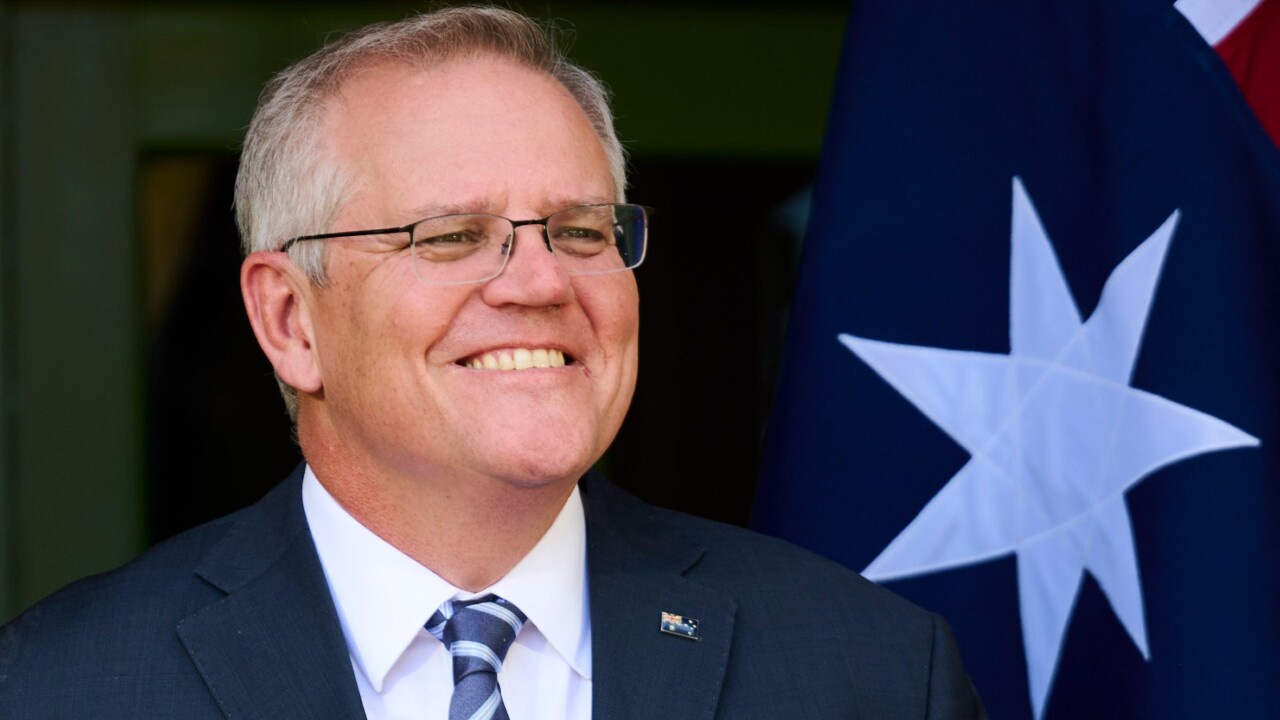
“Anyone catching Omicron in a restaurant or pub for example and who are asymptomatic won’t know they’re infected and could pass the virus on to more vulnerable people,” he said.
“It seems national cabinet is prepared to bet that a massive Omicron outbreak won’t cause large numbers of hospitalisations. Whilst initial data is encouraging, we expect hospitalisations to rise in coming weeks simply due to the very large number of cases.” The new close-contact definition took effect overnight in NSW, Victoria, Queensland, South Australia and the ACT with Tasmania to follow on Saturday. Western Australia and the Northern Territory, which have lower case numbers and lower vaccination rates, will announce their own transition arrangements in coming days.
Individuals currently isolating but who do not meet the new definition have also been freed of any obligation to complete their quarantine, with Mr Morrison declaring on Thursday: “Let them out.”
Mr Morrison said it was time to “reset how we think about the pandemic and how we manage ourselves and the things we need to do as governments,” arguing there was increasing evidence that Omicron, while more infectious, was displaying reduced severity than previous variants.
“If you are anything other than a close contact and you are not symptomatic, you don’t need to go and get a test,” he said. “This is the gear change. That is the reset. That is what we need people to really understand.”
Mr Morrison said the reset was based on the recommendation of chief medical officer Paul Kelly who conceded on Thursday that the new rules meant cases would increase from their current levels of about 110,000. However, he said the latest evidence from South Africa was that the nation was witnessing a 73 per cent fall in severity.
Professor Kelly said that Australia’s health system was also performing well in coping with the Omicron variant, with about 1400 Covid hospitalisations out of the 110,000 active caseload, intensive care unit admissions running at 122 and 51 people on ventilators.
Given the major increase in Covid cases, Professor Kelly said the test, trace, isolation and quarantine regime needed to focus on where the “risk is greatest”. He argued it was imperative to ensure “those people that are the closest contacts are getting rapidly diagnosed (and) rapidly isolating.”
Speaking earlier in the day, Health Minister Greg Hunt also noted that two-thirds of those people in ICU were unvaccinated.
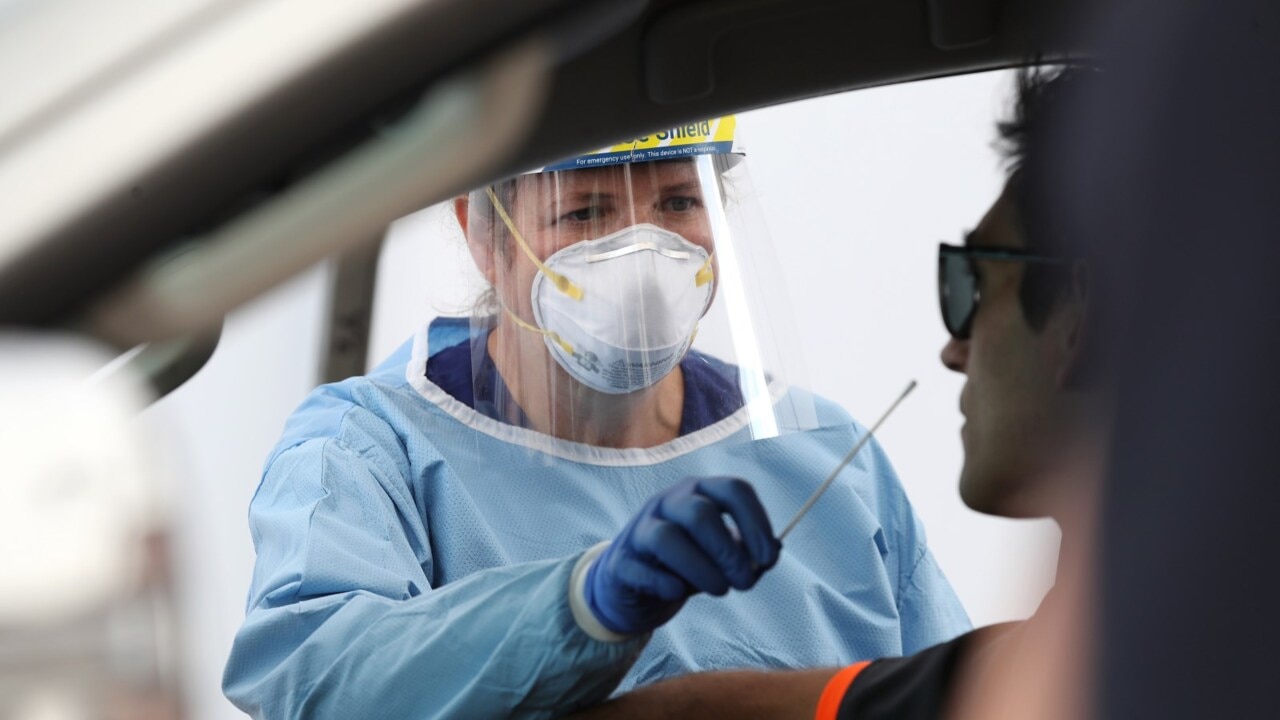
“So there’s only a very small proportion of Australians who are unvaccinated,” he said. “Less than 6 per cent have had no vaccination and less than 9 per cent have yet to have their second dose. And yet they make up two-thirds of the people in ICU.”
BCA chief executive Jennifer Westacott said that by delivering a nationally consistent definition of a close contact, state and federal leaders were signalling the move to a “more stable and certain 2022”.
“This move will also help ensure supply chains are working, shelves are stocked and businesses can keep their doors open by taking a risk-based approach to managing close contacts,” Ms Westacott said.
“For the past two years the lives of Australians have been thrown into chaos by stop-start restrictions, inconsistent rules and ad hoc border closures. Now, we’re in a new phase of the pandemic so national cabinet is right to focus on managing the risk and letting people get on with their lives.”
But Anthony Albanese on Thursday accused Mr Morrison of having “stalled the recovery” from the pandemic, warning he had failed to secure adequate supplies of boosters including for aged care centres and those with disabilities.
The Opposition Leader also blamed the government for not having secured enough supplies of rapid testing kits, arguing that people forced to wait in queues were doing so because they were unable to purchase rapid tests elsewhere.
However, he argued that a “commonsense approach” should apply to the new definition of a close contact, arguing that Labor would listen to the health experts.
“It makes sense to have more consistency in terms of contacts coming out,” Mr Albanese said.
“Business are crying out for that, but so is the population as well.”
Lieutenant-General John Frewen, who is in charge of the vaccine rollout, said on Thursday that about 2.3 million out of 3.9 million eligible people had received their boosters. By early January, 7.6 million Australians will be eligible for their third jab.
Mr Morrison also conceded that the transition from PCR tests to rapid tests at state testing centres would take place “over the next couple of weeks”.
National cabinet addressed interstate travel arrangements, with Mr Morrison saying Queensland would move to rapid tests for arrivals from Saturday and that, once it had achieved a vaccination rate of 90 per cent, would drop any requirement for testing. “Tasmania is on a similar pathway,” Mr Morrison said.
More Coverage
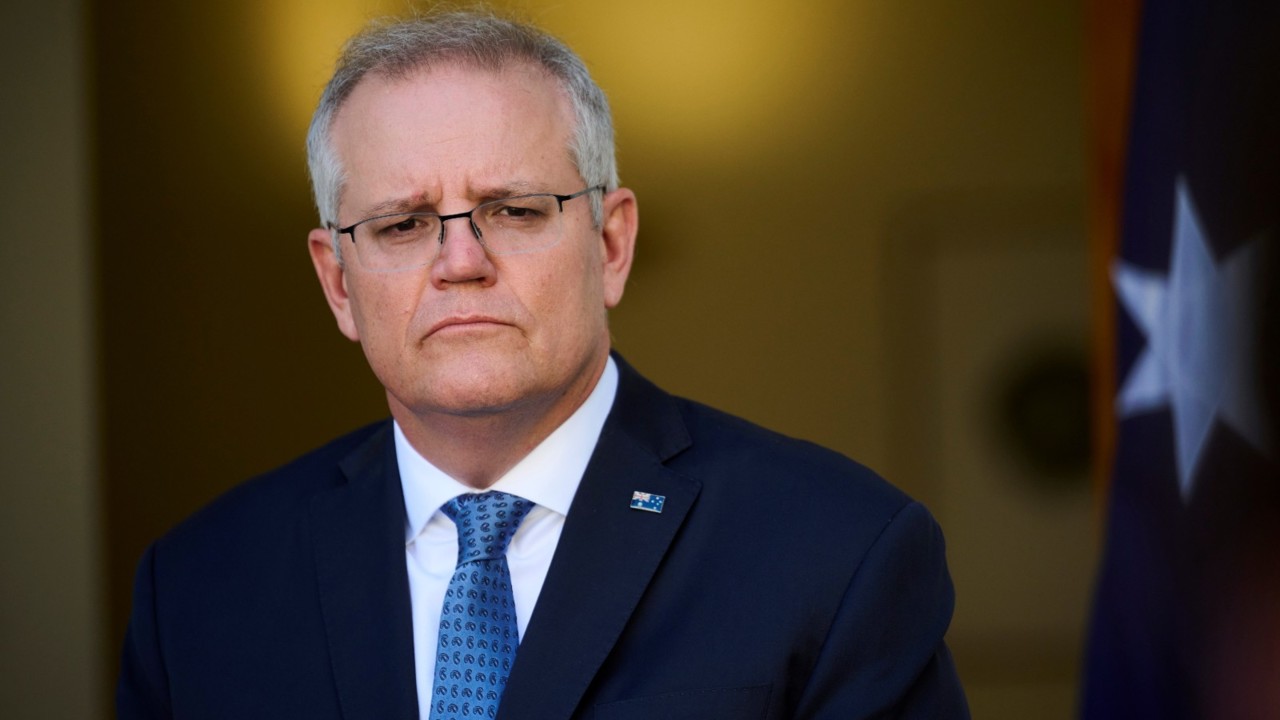



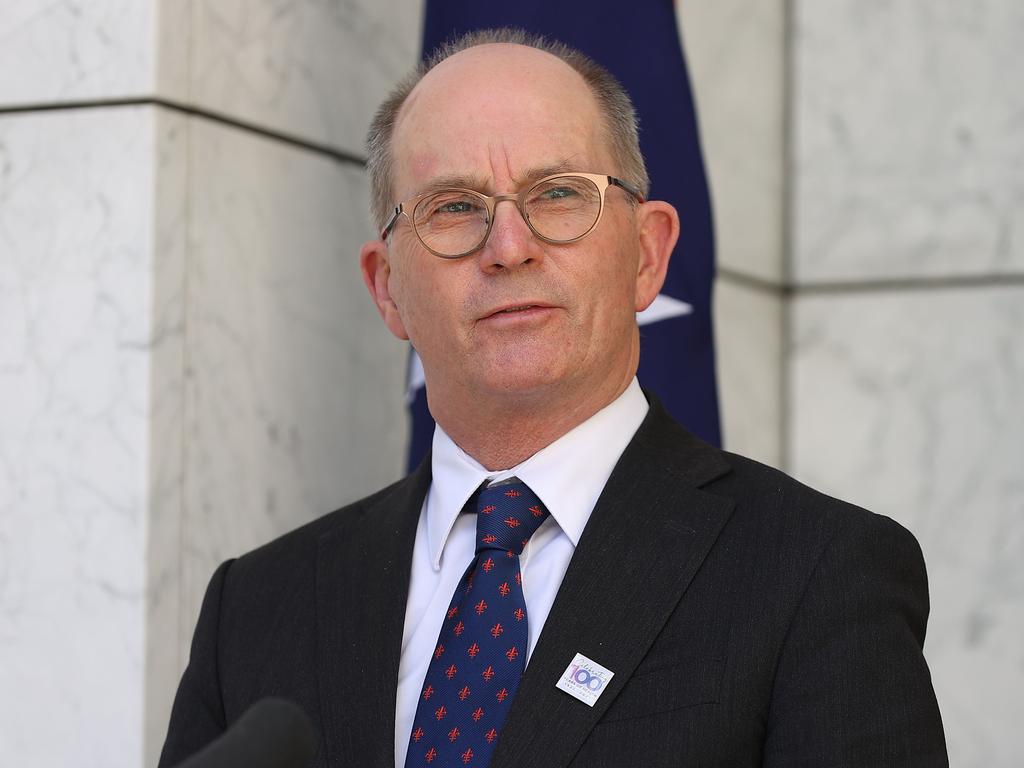
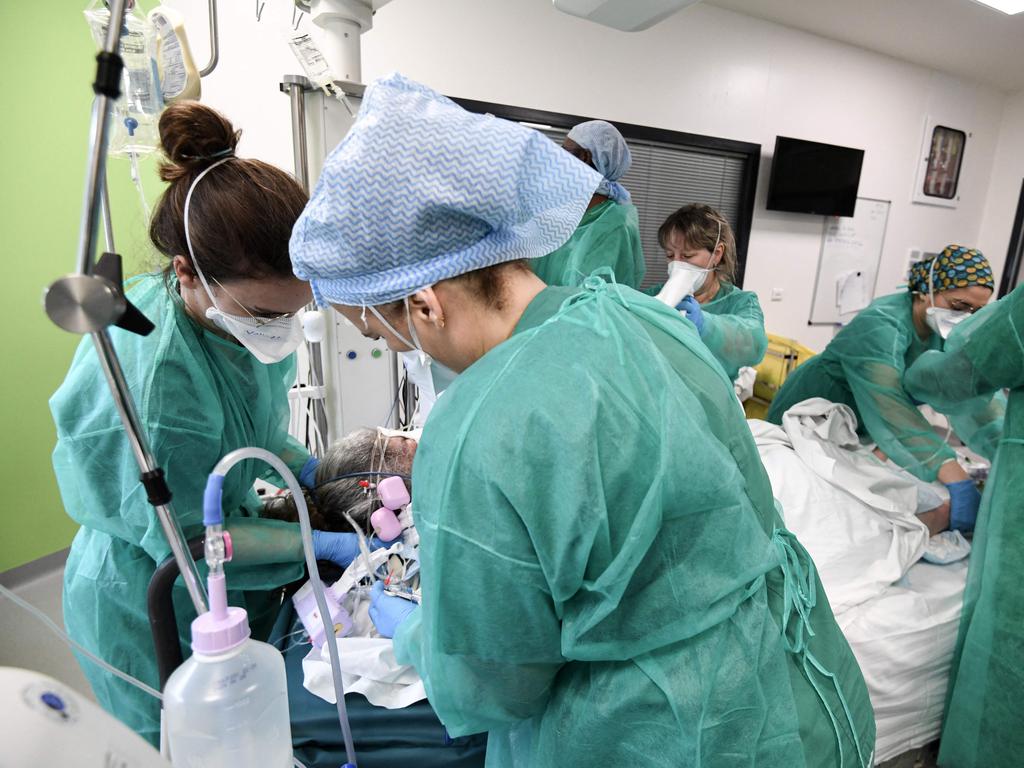
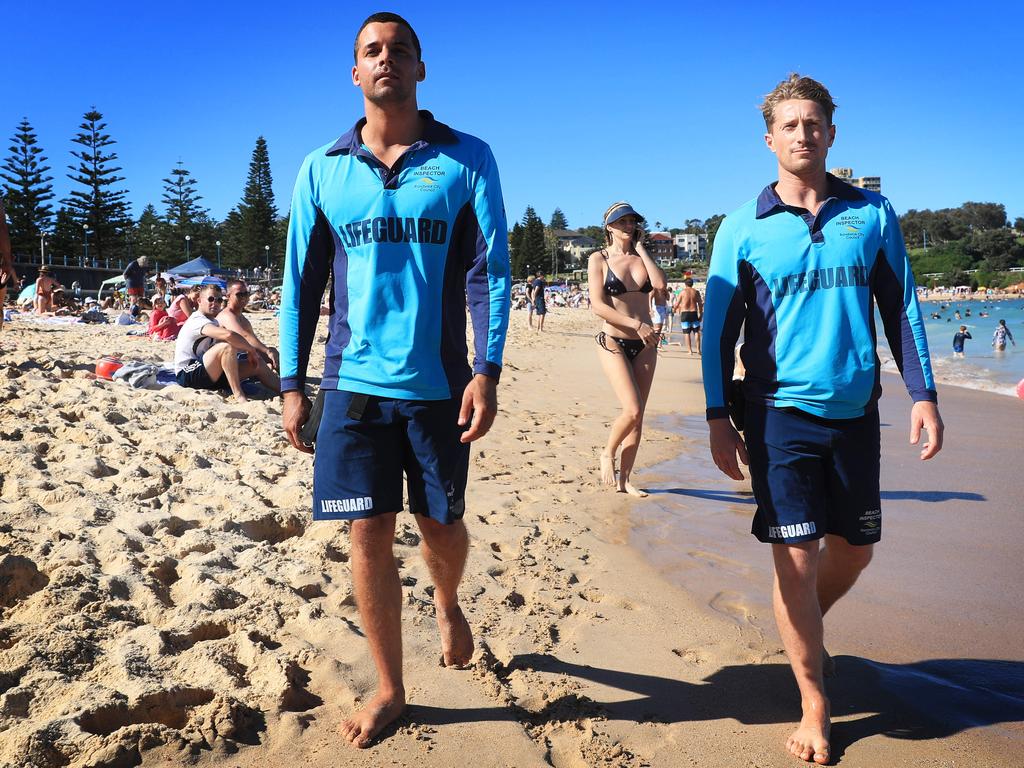


To join the conversation, please log in. Don't have an account? Register
Join the conversation, you are commenting as Logout